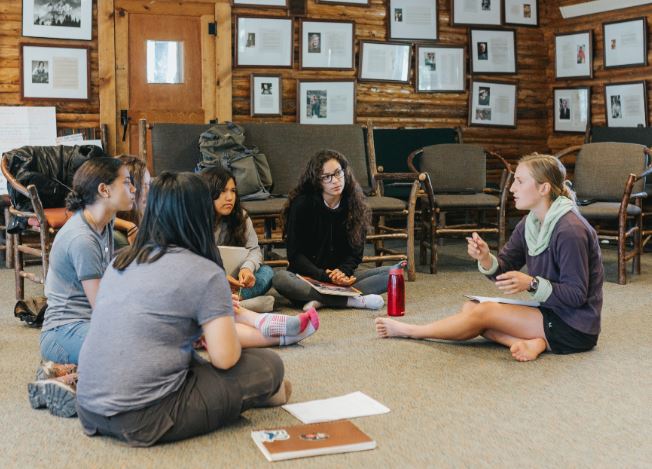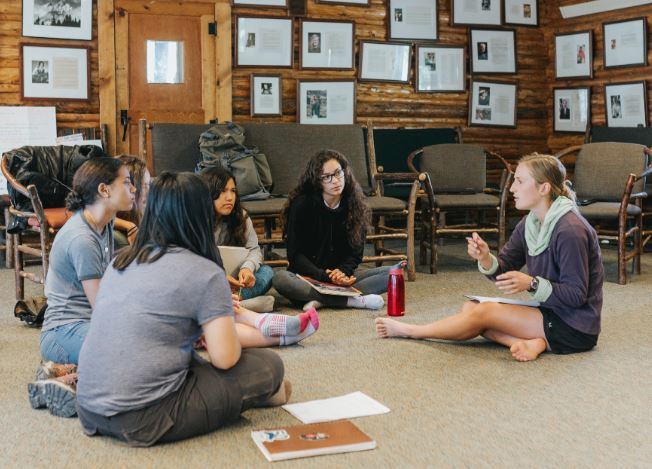Industrialized education is dead. Young people absorbing content absent of context creates factory workers for the Industrial Age not leaders for the 21st century. In the beginning, Teton Science Schools operated in the informal education sector creating opportunities for high school students to learn by “doing science” on public lands in the Greater Yellowstone Ecosystem. Across five decades and over 250,000 alumni we developed an interdisciplinary approach to formal and informal education beginning with student inquiry, solving problems through design thinking, and using our communities and ecosystems as classrooms.
With the creation of our graduate program almost 25 years ago, Teton Science Schools began building skilled educators who bring the relevancy of field-based teaching into the classroom and the rigor of classroom teaching into the field. Today, our graduate program and teacher professional development enable current and aspiring educators to build their skills through immersive teaching experiences in schools and in the field supported by a unifying TSS Framework. We don’t limit classrooms to four walls. Instead, student learning must be immersed in the cultural, economic, and ecological aspects of a place. Our classrooms are more often a museum, a National Park, or the local town hall instead of four walls and a chalkboard. Through place-based education, we improve student engagement, outcomes, and positive impact in our communities.
Over the last decade, we’ve seen a significant increase in teacher training, teacher prep, or teacher development programs. Building on the practicum rich experience of Teach For America in 1989, forward looking Graduate Schools of Education such as High Tech High, Relay, or Alder have filled an important need. These graduate programs envision a world of transformed education, focus on immersive teaching supported by coaching, and are dedicated to urban K-12 education. Like us, they are responding to an outdated teacher preparation model that saw a 35% decline in teacher education program enrollments from 2009–2014. Unique to TSS is our focus on building educators ready to make their rural classroom the surrounding community and ecosystem.

Blurring the walls of our classrooms to improve student learning requires skilled educators and we believe we develop some of the best. Our graduate program alumni teach in public and independent schools, lead non-profit education institutions, or work in one of the many informal education sectors (museums, environmental, early childhood, etc.). Practicing teachers completing TSS professional development believe they create more agency in their students and better immerse learning in the real world. Most importantly, following TSS professional development more than 50% of their students report higher engagement in learning and 87% of their students increase scientific literacy.
We are looking for our next Vice President of Educator Development to create and run the future of place-based educator development for pre and in-service teachers.
This leader will embrace the intersection of formal and informal education. This leader is ready to tackle the challenges faced by rural educators. This leader continually strives to inspire curiosity, engagement, and leadership through transformative place-based education.
Join our team. Submit an application before March 16, 2018.

